What does a copywriter do?
Do you have a way with words?
Do you dabble in psychology, and enjoy speculating about how other people think and feel?
Do you want to become a professional writer but note sure how to make a career out of it?
Do you feel at home when browsing the internet? (Not like that…get your mind out of the gutter!)
If so, a job as a copywriter might be right for you. With a career in copywriting, you can get paid to write, and if you play your cards right, you can get paid VERY well to write too. And you don’t even need a Bachelor’s degree…what a dream!
But what exactly is a copywriter? What do they do day in, day out? And how are they different from a content creator, an SEO writer or a blogger?
You’ve got questions, and baby, I’ve got the answers. So let’s get together and go over the basics of copywriting—what it is and how it works. After that, I’ll outline the skills needed to be successful as a copywriter, and help you decide if this career is right for you.
Table of Contents
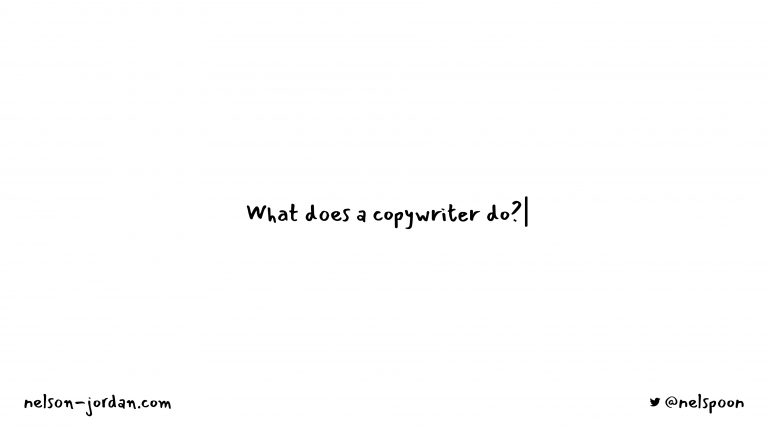
What is a copywriter, anyway?
If you spend time reading copywriter forums and interacting with people who call themselves copywriters, you’ll realise one thing pretty quickly…there’s a lot of confusion (and contention) around what constitutes a copywriter.
Some dictionaries define a copywriter as someone who creates copy for advertising or publicity materials. While this definition may have sufficed a decade ago, since the advent of the internet, the term “copywriter” is more often used to mean:
Someone who writes for the internet
Once again, that’s a pretty broad definition. But it’s not inaccurate, because copywriters are a diverse group, with these similarities:
- They all use words to convey meaning and messaging for a business or organisation.
- They publish those words (typically somewhere on the internet). “Publishing” in this case may refer to simply uploading content via a CMS like WordPress, or submitting content to a website/publication.
- They are compensated for their writing.
That’s a very basic understanding of the profession, but let’s drill down a bit more.
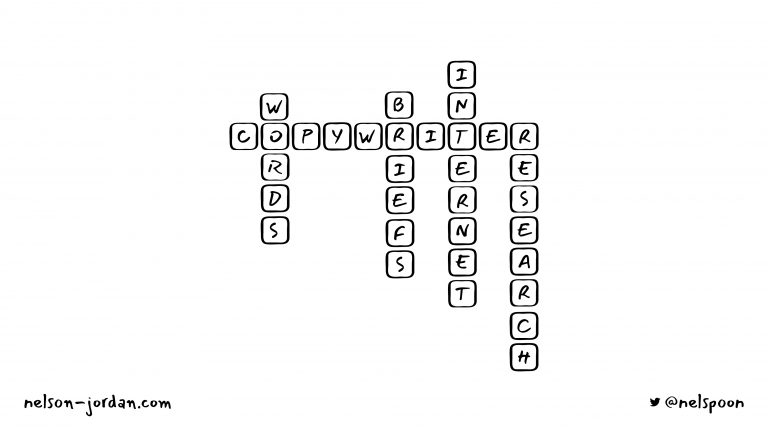
Copywriting vs. Content Marketing: What’s the difference?
Here’s a question you’re bound to come across as you learn more about the copywriting profession: What’s the difference between copywriting and content marketing?
Once again, this issue is largely semantic—there are no “official definitions” for copywriting or content marketing, and the terms mean different things to different people. Some people even argue that these two terms are synonymous.
You will hear some people make this argument: Copywriting is part of content marketing. Here’s how these folks see it:
Content Marketing involves the strategy, methodology, and production of all types of digital content, including the written word, graphics, video, and more, to achieve specific business or marketing goals. Professionals in this area are usually called content creators, SEO blog creators or content strategists.
Copywriting is the art of creating written content that serves content marketing goals, but may be designed to meet brand or direct-response objectives.
The jury is still out on the “content vs. copywriting” issue, so for the purposes of this article, I’m going to focus on the latter definition: copywriting as a profession that involves publishing your words on the internet.

What does a copywriter do?
It’s not easy to give a formal definition of copywriting, but we can look at what people in this field do in their day-to-day work to get a better understanding of what it means to be a copywriter.
What types of copy do copywriters create?
First, let’s look at the different types of copy people create. Remember that copywriters are not limited to only producing one type of content. Copywriters may have specialties or preferences, but you’ll find most are happy to tackle at least a few of the items on this list.
Not all people who write copy are called copywriters either, some are called digital marketers, social media marketers or SEO content creators.
Confusing, eh?
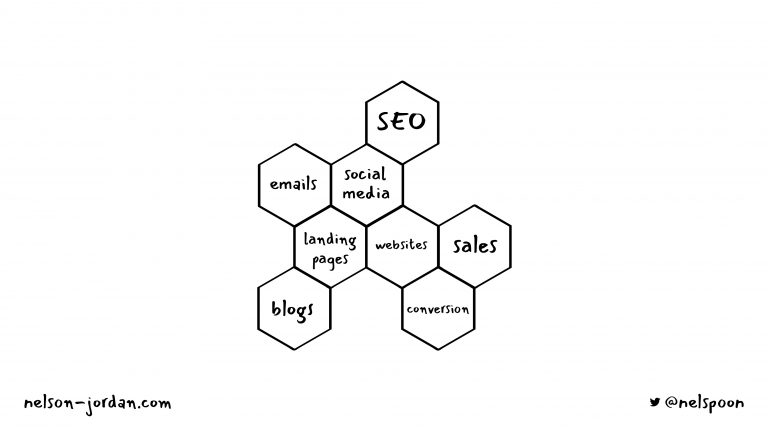
Landing page and website copy
These days, nearly every business has a website—and all of those businesses need high-quality copy if they want to succeed. The words that end up on homepages, services and product pages, and even About Us and Contact Us pages are often created by dedicated copywriters.
Copy for web pages is one of my specialities. I pride myself on creating high-converting website pages. (If you’d like to see some examples of my work, you can book a discovery call here.)
Blog copy
Some copywriters focus on blogging—either for their own websites or for other businesses. Blogs are typically longer and less sales or conversion-focused than landing pages or website copy. Blogs encompass things like listicles, interviews, thought leadership, and how-tos. (Yes, dear reader, I do write blogs. Get in touch for a free 30 minute discovery call if you’re looking for help with blog writing.)
Email copywriting
The world of email marketing is alive and well, and there are copywriters out there who make a good living by writing copy for these mailouts. Email copywriters help businesses build email marketing campaigns to sell products, engage readers, or for educational purposes. Although ecommerce and SaaS businesses are the main industries that need regular email content, there’s not a business I can think of that wouldn’t benefit from creating better emails.
Sales copy and conversion copywriting
Some copywriters out there create content specifically designed to improve sales and conversions for their clients’ target audiences. These landing pages might look like long-form sales pages for a specific product or service. (This is my jam, so hit me up for a free 30 minute discovery call to see how I can increase your sales.)
The job may also involve editing or rewriting copy to help improve conversions, or creating sales collateral (like brochures) or sales letters.
SEO copywriting
Search Engine Optimisation (SEO) is a marketing tactic that involves using content to improve a website’s visibility on search engines, like Google. Writers in this area will have a deep understanding of how Google’s algorithm works, and they’ll write content that is specifically meant to help businesses improve their organic web traffic. When Google crawls this blog, for example, it’ll rank for certain keywords, bringing anyone who has searched for those keywords to my site.
Social media copy
With the ubiquity of social media platforms, it should come as no surprise that there are writers who specialise in creating engaging, insightful, funny, or promotional copy for sites like Facebook, Twitter, LinkedIn, and Instagram.
That covers the basic types of copywriting, but there are still copywriting projects and specialties that break the boundaries of what I’ve listed here. And considering how quickly our technology changes, there may well be new types of copywriting that come into play before I’ve even hit “publish” on this article!
If you’re looking to become a copywriter, my advice is to start poking around in these different areas and see what resonates most with you. If in doubt, try as many of these as you can – there’s no need to make a decision right away, and many copywriters work across several areas.
In-House vs. Freelance vs. Remote Copywriting
When it comes to copywriting, there are generally three paths people can follow: in-house, freelancing, or remote copywriting.
In-house copywriters work for a single business or agency. They provide their writing skills for the company and are paid a salary. Typically they’ll be paid less than an in-demand freelancer, but this option provides a lot more security in return (regular salary, pension and benefits etc.)
Freelance copywriters are on the other end of the spectrum. They work for themselves, finding their own clients (and also doing all of the other stuff that goes into freelancing—finding clients, processing payments, etc.)
Remote copywriting is somewhat of a blend of both worlds. As a remote copywriter, you would work for a singular company that would pay you a set salary or hourly wage. However, that work could be done from anywhere, as the company would not expect you to do work from an office. These types of copywriting roles have started to sprout up more and more, especially since Covid-19 has changed the way we work.
Like many jobs, copywriters can take on part-time, full-time or project work.
What tasks do copywriters take on?
I’ve covered the basic types of copy you might create as a copywriter, but what will your day-to-day work look like? Let’s look at some of the things copywriters are expected to do.
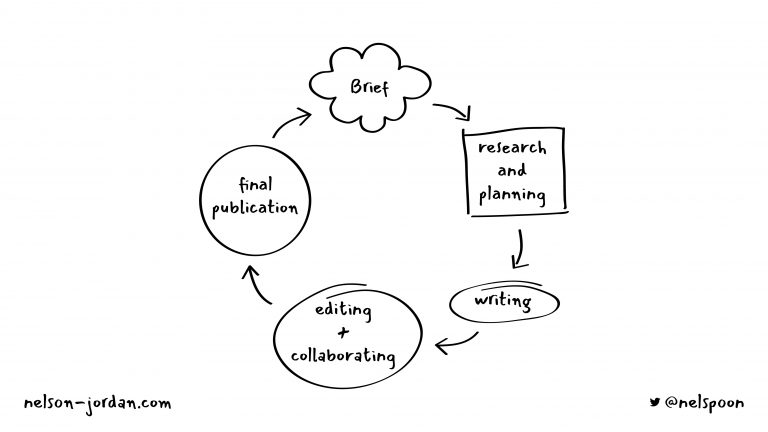
Interpreting Briefs
Briefs will be a big part of your life as a copywriter, no matter what type of writing you take on. A brief, typically written by your client or a project manager, explains exactly what is needed in any given copywriting project. Being able to understand briefs—or ask for more information when you’ve received a thin brief—is a necessary part of the job.
Researching and planning
Depending on what type of content you’re creating, you’ll need to do some research to create a truly stellar piece of copywriting. For more in-depth forms of content, like blogging, interviewing, or journalism, you may even end up spending more time researching than writing. And whenever you’re writing for a specific company, you’ll need to research the company’s products and services, mission, branding, and audience.
Writing, of course!
Here’s the obvious one—as a copywriter, you’ll be doing lots of writing! Copywriters may create multiple drafts for a single project, and you can expect to go through feedback processes with your clients before coming up with a final draft.
Editing copy and responding to feedback
Copyediting is closely related to copywriting—and there are indeed some copywriters who also provide editing as one of their services. But even if you stick to writing as your main service, you’ll still need to spend time editing and proofreading your own copy before you send it to clients, and taking clients’ feedback to improve your drafts and ready them for final publication. I create several drafts for myself before my clients even see my work. That way I know that I’m sending them the best quality work I can.
Collaborating with others
When you’re putting words on the page, you’ll likely be working alone. But for the other aspects of your job as a copywriter, you will likely be collaborating with others. You may be working with CEOs, marketing directors, developers, UX designers, graphic designers, sales executives—it all comes down to the projects you’re working on and whose input is needed.
What skills do copywriters need?
If you’ve made it this far in the article and you’re still thinking that copywriting sounds like a good career option for you, then it’s time to start focusing on the specific skills you should be developing to make your path as a copywriter more lucrative. After all, one of the reasons that people choose copywriting is its high earning potential.
While you don’t need every single skill on this list, the more of them you have under your belt, the easier you’ll find high-paying copywriting jobs. Let’s review what skills you may want to start working on now:
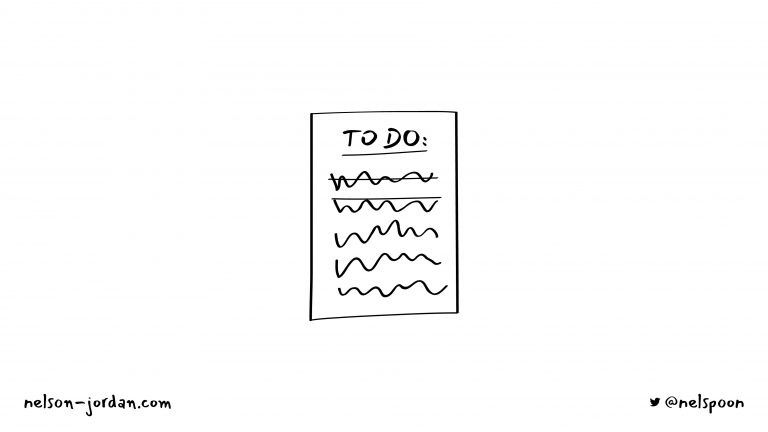
Writing skills
This one is a no-brainer—to be a successful copywriter, you have to be a good writer! This means more than just knowing your grammar and syntax (though that’s important too). If you want to make it in the world of digital copywriting, you also need to know how to:
- Write clearly and directly
- Emulate the right tone of voice for your client
- Format content for the web (such as avoiding long paragraphs, using lists and bullet points, breaking up content with subheadings, etc.)
- Create unique copy that stands out
Communication skills
Here’s something you’ll learn early on, if you haven’t already: good writing is only one small part of good communication. In addition to being able to communicate well through your words, you’ll also need to be a strong communicator on the phone, in person, or when writing emails to clients.
Personal marketing skills
As a copywriter, your job will be to help businesses execute their marketing strategies with strong content. But you also need to be doing your own marketing to keep clients coming in the door. This means identifying channels where you can find new clients (like LinkedIn, Facebook groups, word-of-mouth, or through inbound visits to your website). Once you have those clients interested, you’ll need to master the ability to turn leads into paying clients—something that requires persuasive skills, confidence on the phone or on video calls, and the ability to suss out the right types of clients for your business.
Creativity and curiousity
There are many, many copywriters out there, so having the ability to think outside the box and come up with creative solutions to your clients’ problems will help you get ahead. Similarly, if you maintain a healthy level of curiosity about your clients, their businesses, and their goals, you’ll be able to produce engaging, exciting copy (and won’t become too jaded…at least, in theory!)
Basic web design/website management
Because most of your content will likely end up getting uploaded to a website, it’s a good idea to learn the basics of platforms like WordPress, Wix, and/or Squarespace—and maybe even a little bit of basic coding (although personally I couldn’t code my way out of a paper bag.) Being able to help your clients upload the content, or even offering this as an additional service, will increase your value as a copywriter.
Search Engine Optimisation
I’ve talked about SEO in this blog before because it’s one of the most valuable skills for copywriters out there. Many businesses are focused on bringing in more organic traffic, and optimised copywriting is the best way to do this. If you understand how SEO works and how to create content to improve a website’s rankings, you’ll be able to use these skills to sell your services to clients. If you can help your clients rank higher for important keywords, you can really start to show your value, and charge accordingly.
UX/UI optimisation
User experience and user interface optimisation are two terms relating to the same thing: how users experience a website. Think about the last few websites you visited. Were they easy to navigate? Did they load quickly? Did you have an easy time finding what you wanted? Much of UX/UI is the responsibility of a web designer, but copywriters play a big part too. The words you put on things like buttons, menus, and calls-to-action can make a big impact on a site’s overall UX, so learning the basics of UX/UI is a wise move.
Email marketing platforms
If email copywriting sounds like something you’d like to pursue, then it pays to know your way around email marketing platforms like Mailchimp, Convertkit or Omnisend (affiliate links.) Clients will love you if you not only know how to write emails that achieve their goals, but also how to set up those email campaigns when it’s time to start sending them out.
Let's wrap this up
Hopefully this helped you understand what a copywriter is and what they do every day. I’ll be back more with insights on how much you can earn as a copywriter and what you can do to start building up your own copywriting services soon.
If you liked this article and want more tips about becoming a copywriter and growing your business, then sign up to my newsletter below. I send out a weekly email where I share tips and the latest news about my podcast ‘Working From Home’.
